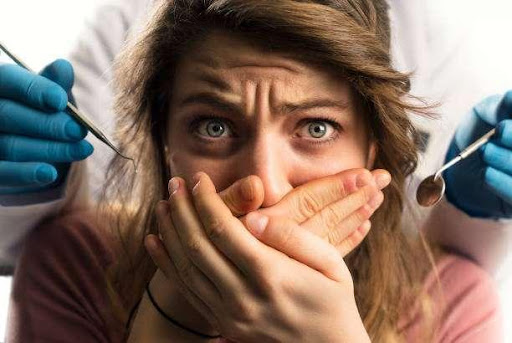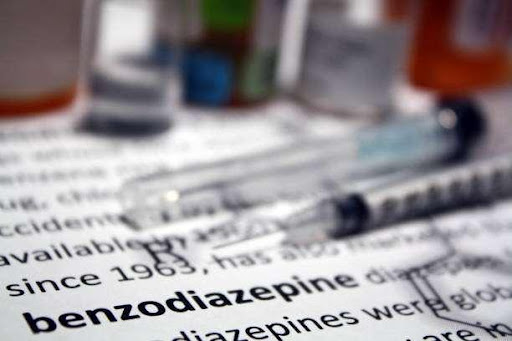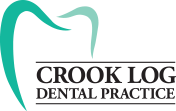

This blog article will delve into the details of dental sedation, how it works and what you should expect. So, if you’re interested in understanding more about your options for feeling comfortable at your dental visit, keep reading!

Dental phobia refers to an extreme fear of the dentist. It can involve many different worries or one specific fear. People with dentophobia, also called odontophobia, have a fear of dentists. Someone with dentophobia may have extreme anxiety about going to the dentist or while in the dental practice.
An Adult Dental Health Survey in the UK in 2009 reported that women are twice as likely as men to experience extreme dental fear and anxiety. In a recent study in 2018, according to the Oral Health Foundation, around 10 million adults in the UK suffer from dental fear. You are not alone if the thought of visiting the dentist feels you with dread!
Many patients of Bexleyheath, Kent, may be thinking about getting their teeth checked or visiting their dentist or hygienist at Crook Log Dental Practice but be filled with an overwhelming feeling of anxiety and fear, a dental phobia.
Most dental fears and phobias are caused by previous bad experiences or having previous traumatic dental treatment.
Sometimes, patients can’t recall a bad experience because they were very young. We often hear from our older generation of patients that their childhood dentists would use a gas mask on them during fillings.
Yet they may only learn about the event through their parents or friends who have similar stories during this period. But the anxiety is still there, even though they may have no conscious memory of the event.
Dental phobias can also be brought on by other traumatic experiences, including abuse, generalised anxiety, depression, or post-traumatic stress disorder.
In one large study, patients who reported painful dental treatments and a perceived lack of control were 13.7 times more likely to report higher dental fear and 15.9 times less willing to return to dental treatment.
Yet many patients without any past trauma feel that their mouth is an invasion of their personal space and feel a loss of control and fear when visiting the dentist.
People often use dental anxiety, fear, and phobia to mean the same thing. Sometimes they use them to express a continuum of severity, ranging from mild anxiety to more extreme phobias.
You may think fears are excessive or irrational, but dental worries are often very realistic to the individual. Many of the things patients are afraid to include:
At Crook Log Dental Practice, you are assured these phobias will not become real-life scenarios in our surgery. Our team strives to educate and explain dental treatment thoroughly and calmly rather than lecture patients.
We ultimately want our patients to achieve healthy, happy smiles that they are proud of, not to feel embarrassed or told off.
Our clinicians will always ensure our patients are comfortable and consensual before and during dental treatment. Our clinicians will always stop for comfort breaks and stop treatment if asked by our patients if they are in distress.
Often by attending the first initial consultation and getting used to the sounds and smells of the dental surgery, it’s sometimes enough for a nervous patient to conquer any fears and tribulations about visiting the dentist.

Because you are the one leading the way, your dental team will give thorough guidance through your treatments with compassion and patience. Your dentist and dental nurse will learn and comprehend precisely what you require to make your experience as pleasant as possible throughout your treatment.
If you are struggling with daily fear and anxiety, please click this link Get help with anxiety, fear or panic – NHS (www.nhs.uk) for extra support and advice from our amazing NHS.
At Crook Log Dental Practice, we are happy to provide dental sedation to assist nervous patients in overcoming dental anxiety and feeling more at ease during dental treatments.
You will be conscious during the treatment, but sedation will put you in a profound state of relaxation.
Sedation will make you feel in a dream-like state and help you to accept dental treatment. You will remain conscious and able to understand and respond to requests from your dentist. Many patients describe it as a ‘drunk feeling’, making them feel light and floaty.
Intravenous sedation can often produce partial or complete memory loss from when the drug kicks in until it wears off. As a result, time appears to move quickly, and you may not remember any of your procedures. So while you are awake and conscious, the whole treatment may seem like a dream.
We utilise two types of sedation: minimal sedation and conscious sedation. After visiting us for your initial consultation, your dentist will discuss the most appropriate dose of sedation with you after a medical history check.
There are two types of sedation we offer at Crook Log Dental Practice;Oral sedation – Your dentist will prescribe a sedative pill to take approximately an hour before your treatment for mild sedation. The drug will make you feel sleepy, but you will remain aware. To create more substantial sedation, your dentist may provide a higher dosage.
Intravenous Sedation (IV Sedation) – The sedative medication will be administered intravenously (through a vein) to take effect faster. You will feel sleepy, and even the most nervous patients may forget they had dental treatment when they fully recovered.
We will use a local anaesthetic for your dental treatment to guarantee your comfort and carefully monitor you regardless of the type of sedation you get. After treatment, you must bring a friend or family member to drive you home.
The clinician will introduce a thin needle into a vein on your hand or arm. The needle is connected to an intravenous tube that delivers the sedative directly into the bloodstream. A numbing cream may be applied to the area that will be pricked by the needle if you fear needles.
The clinician and nurse stay with you and will constantly monitor your pulse and oxygen levels to ensure you do not have an adverse reaction to the sedative. Your blood pressure will also be checked before and after the procedure.
IV sedation works very quickly, with most people falling into a dream-like state roughly 15 minutes after administering it. Once the IV sedation is removed, you will begin to wake up in about 20 minutes and be fully recovered from all sedative effects within approximately six hours.
The clinician will introduce a thin needle into a vein on your hand or arm. The needle is connected to an intravenous tube that delivers the sedative directly into the bloodstream. A numbing cream may be applied to the area that will be pricked by the needle if you fear needles.
The clinician and nurse stay with you and will constantly monitor your pulse and oxygen levels to ensure you do not have an adverse reaction to the sedative. Your blood pressure will also be checked before and after the procedure.
You may feel a little groggy after the procedure. For this reason, you will need to have a responsible adult, a family member, or a friend drive you home. They will need to stay with you for the rest of the day and evening.
Immediately after sedation, you must not :
To ensure you’re a suitable candidate for any form of dental sedation, you must share your full medical history with your Crook Log Dental Practice clinician. This ensures they make a qualified medical decision that’s safe for your overall health.
Many patients are suitable for IV sedation. However, not all patients qualify for the procedure. You may not be eligible for IV sedation if you fall into these categories:
IV Dental sedation is not recommended for pregnant women at nearly every stage of the pregnancy. If you think you could be pregnant, even if you’re not sure yet, make sure to tell your dentist.
Intravenous sedation will only be offered to patients over 16 years of age who are deemed appropriate for this treatment after a full assessment by a sedation dentist.
In oral and IV sedation, benzodiazepines (diazepam) are the most common medication, although others are available. Patients with allergies to the typical medication may be able to use an alternative. Still, they may not, depending on other underlying conditions. Share any allergies you have with your dentist.
Certain medications can’t be mixed with sedation. You must tell your dentist about every medication you take. This includes prescribed medication, over-the-counter medication, vitamins, or herbal remedies. If you don’t, you could have adverse side effects with IV sedation when mixed with your current medication.
IV sedation is not recommended for patients with sleep apnea. This is still a concern even if you haven’t been officially diagnosed with sleep apnea. If you’re overweight and snore, you need to let your dentist know, as this can indicate sleep apnea.
Alcohol causes complications like lowering your blood pressure and making it difficult for you to breathe during IV sedation. If you have recently consumed alcohol, your clinician will not carry out the procedure.
Drugs also cause severe complications during IV sedation. They must not be consumed if you are planning on having sedation.

Many dental procedures can be carried out under sedation, including:
For more information on the services we provide, click this link: https://www.crooklogdentalpractice.co.uk/treatmentcategory/general-dentistry/
A written consent form is to be signed by the patient, and our team are to ensure you have an escort to safely take you home and monitor you for the remaining day and evening.
You must inform the clinician if your medication or health has changed since your previous appointment.
Fasting is not required before your sedation. It would help if you had a light meal approximately an hour or two before the appointment. Greasy/oily food should be avoided as it can make you feel nauseous during and after the treatment.
Any questions you may have will need to be answered before starting the IV sedation, as you will not remember after the procedure.
For further information about IV sedation, please visit the NHS UCL website by clicking this link Information for Patients undergoing Intravenous Sedation : University College London Hospitals NHS Foundation Trust (uclh.nhs.uk)
Booking has never been easier. Call our friendly team on 020 8303 3838
Or use our online booking to book your first initial consultation by clicking this link Online Booking (dentalhub.online)
Back to Blog“Recently I have had RESTYLANE Dermal fillers injected into my lips to make them...”
“I have always been conscious of my teeth and always wanted that “perfect smile”....”
“I have never been happy or confident about my smile since I was a...”
“I had originally chipped my front tooth a long time ago and had it...”
“During a recent holiday, I had a fall, landed on my chin and damaged...”
“I have been Dr Chawich’s patient for about 10 years and have always had...”
“I was very self-conscious about my crooked front teeth even after having them whitened...”
“At the age of 76, my few remaining upper teeth became insufficient and eating...”
“I had my teeth whitened by laser and home moulds and also had a...”
“I am a patient of Dr Khan’s and now have amazing front teeth! Went...”
